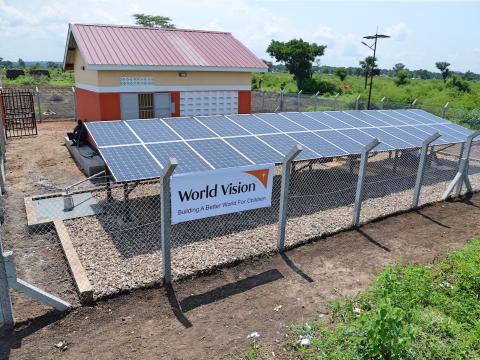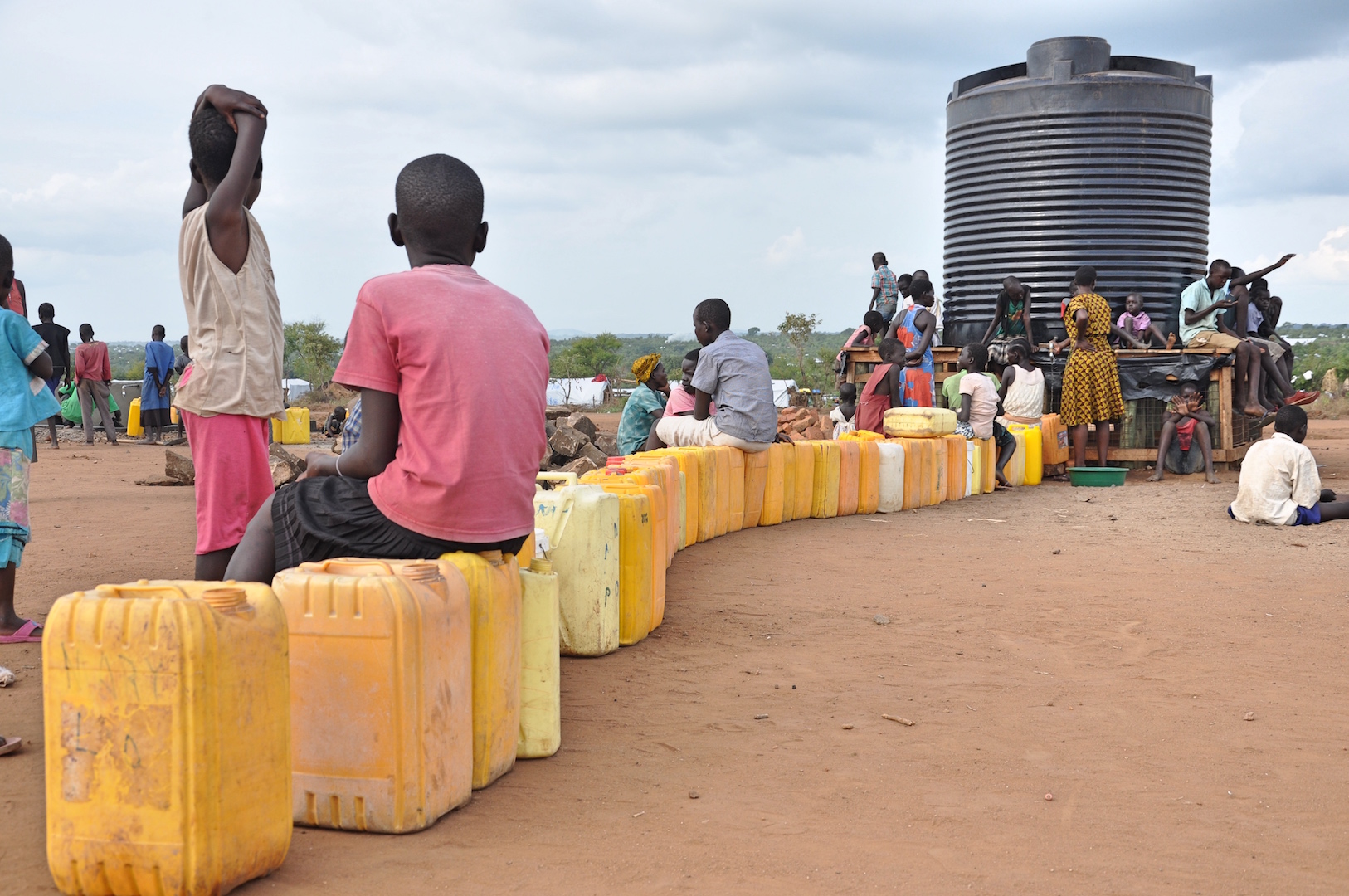Clean water arrives for 5000 people at Palorinya refugee settlement

Twelve-year-old Jimmy Monoja, a refugee from South Sudan is reeling with joy about the arrival of clean drinking water to his village. This means he will not be reaching school late again because of having to first fetch water 1.5km away.
Jimmy’s daily routine used to start by collecting 15 litres of water for his single mom and two siblings. He’s all the support his mother has right now. It took Jimmy roughly 30 minutes to reach the water source but the queue compels unwavering patience.
“By the time I got there, so many other people had already arrived. It could take up to 40 minutes or longer before I got the water,” explains Jimmy.
For refugee communities like Jimmy’s where trucks transport water almost every other day, standing in a queue for longer than two hours is nothing new. Sometimes the truck will break down on the way due to the poor nature of the roads. On such days another truck will then be called in to salvage the situation, arriving several hours later.
Class time at Jimmy’s school start at 8am but the earliest he ever gets there is 9:30am.
By then, the first lesson is finished and the teacher has collected all exercise books for marking. Sadly that first lesson is usually Mathematics, Jimmy’s hardest subject.
“I love mathematics but I don’t get good results from it. My teacher tells me I need to attend all classes in order to improve. But it’s hard to catch the morning maths lessons,” Jimmy explains.
Sadly, Jimmy is not the only young star having sleepless nights about morning lessons at Palorinya refugee settlement, northern Uganda.
Fifteen-year-old Kiden Evelyn is another one. In December she will be doing her senior four final examinations. But she will need to be at her best in order to brighten her chances of becoming a nurse.
“Sometimes we are not able to get the water on time in the morning, we then have to go back in the afternoon when the line has reduced. This means you have to leave school earlier before classes end or else the line becomes longer again,” explains Evelyn.
But Jimmy and Evelyne’s nightmares about water will now be history. World Vision has brought clean and safe drinking water near their homes. There will be no more long queues and no water trucks to wait for.
A motorized solar-powered water system funded by the government of Finland has been set up in their community, providing clean drinking water to 5000 people.
Furthermore, a 30,000 litre water tank has been set up to supply that same amount of water through five tap stands every single day. Each tap stand has four functional taps, all providing clean and safe drinking water at a single press.
“This system will be pumping 4,500 litres of water every hour. We plan to pump for not more than seven hours every day, meaning we are assured of 31,500 litres daily. The water will be chlorinated upon reaching the tank, in order to remove any likely impurities. After this it will then be supplied out to the five collection points. Refugees will like this system because they can fetch water any time of the day,” explains Livingstone Onen, the World Vision project coordinator.
In humanitarian standards, each refugee is entitled to at least 15 litres of water every day. This is exactly what World Vision’s motorized system will supply to its 5000 beneficiaries at Palorinya
One of the five tap stands is just 400 meters away from Jimmy and Evelyn’s homes.
“The water flows very fast and I spend less time filling the jerry can,” an excited Jimmy exclaims.
“Now I don’t have to worry about stocking water at home in Jerry cans since we will not be waiting for the trucks anymore. This one will be flowing every day,” beams Evelyn.
Five water management committees have also been set up and trained by World Vision on how to ensure proper usage and maintenance of each stand. The committees have also been supported with mechanical kits to conduct basic repairs in case of any malfunctioning at the tap stands.
“Motorised water systems like this one are very sustainable because all they need is sunshine. In this part of the country, it shines almost every other day,” adds Livingstone Onen.
World Vision has also set up a stand-by generator for days when it does not shine.
Palorinya refugee settlement is home to more than 100,000 refugees from South Sudan. Water still remains the number one challenge in the four zones of the settlement.
World Vision has attained more funding from the government of Finland to set up yet another motorized water system at Palorinya in the financial year 2018-2019. This means another 5000 people will receive clean and safe drinking water.












